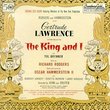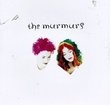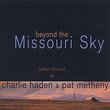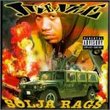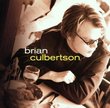| All Artists: Von Freeman Title: Great Divide Members Wishing: 2 Total Copies: 0 Label: Koch Records Release Date: 7/13/2004 Genres: Jazz, Pop, Broadway & Vocalists Styles: Modern Postbebop, Bebop, Traditional Vocal Pop Number of Discs: 1 SwapaCD Credits: 1 UPCs: 099923574323, 669179075921 |
Search - Von Freeman :: Great Divide
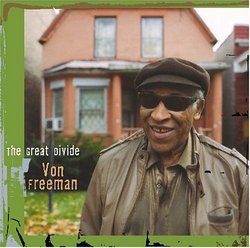 | Von Freeman Great Divide Genres: Jazz, Pop, Broadway & Vocalists
Outside of a couple years he spent in New York City in the mid-1940s, Von Freeman has lived and worked in Chicago, where he was born in 1922. Playing professionally by the age of 12, he's worked with Charlie Parker, Dizzy ... more » |
Larger Image |
CD DetailsSynopsis
Amazon.com Outside of a couple years he spent in New York City in the mid-1940s, Von Freeman has lived and worked in Chicago, where he was born in 1922. Playing professionally by the age of 12, he's worked with Charlie Parker, Dizzy Gillespie, Ahmad Jamal, Dexter Gordon, Andrew Hill, and scores of others. Though he never recorded with them, he was also a founding member of the Sun Ra Arkestra. The wider recognition that belatedly came to him in his 70s continues unabated as he closes in on his 82nd birthday. The Great Divide sets him in a quartet of sympathetically matched players, including veterans Jimmy Cobb (drums) and Richard Wyands (piano). The set mixes three Freeman originals with compositions that reflect the breadth of his influences and inspirations. --David Greenberger Similarly Requested CDs
|
CD ReviewsVon Freeman's Influences and Inspirations, Douglas T Martin | Alpharetta, GA USA | 07/31/2004 (5 out of 5 stars) "Von Freeman is a saxophonist and Chicago jazz legend in a town that is known for producing a lot of both. Like fellow saxophonist/legend Fred Anderson, Von Freeman remained close to home rather than heading toward New York City to make a bigger name for himself. Respect from the community has come slowly, and now into his eighties, Von Freeman is the namesake of a street (Von Freeman Way) and the recepient of an honorary doctorate from Northwestern University. More influencial than famous, Freeman has a unique sound and technique that manages to be both traditional and avant-garde without being too much of either. Von Freeman is the father of saxophonist and frequent collaborator Chico Freeman and often works with younger musicians a generation or two removed from his, as he did with Greg Osby and Steve Coleman in their Stata Institute project. A meeting on more common ground occured when Freeman joined Yusef Lateef for one latter's "Tenors, Featuring..." project. "The Great Divide" finds Freeman working with veterans Jimmy Cobb ("Kind of Blue" drummer), pianist Richard Wyands, and relative newcomer John Webber, bassist of choice for Jimmy Cobb's Mob, Eric Alexander and many others. After a mid-tempo take on "Be My Love", the first Freeman original of the set, "Never Fear Jazz Is Here" comes out of the gate at a full gallop. "This Is Always" is a smoky, ballad that sounds like the last song of the night before they close the club and send everyone home. A slow walking bassline anchors "Blue Pres" as Von Freeman channels Lester Young ("Pres" being an update of Young's "Blue Lester"). "Disorder At The Border" and "Hard Hittin'" are a couple of jumping blues, where Von Freeman shows his Coleman Hawkins influence. These are not note-perfect renditions with pristine tone and fluid phrasing. Von Freeman's sound is raw and gritty, his delivery is unburnished but dignified. Freeman closes out the set with a solo rendition of "Violets For Your Furs", letting the listener wind down after a audio-journey through jazz history. "The Great Divide" is a rough and tumble document of a musician who once worked with Charlie Parker and continues to create important music today." Living history lesson N. Dorward | Toronto, ON Canada | 01/31/2005 (4 out of 5 stars) "This is basically an album of Von Freeman sitting in with Jimmy Cobb's current band, Cobb's Mob. As a result there's a slight sense of two agendas at work--Freeman's a wilful, stubbornly inventive tenor saxophonist in a Hawkins/Rollins lineage (though there's just about every style imaginable in his playing, including some marvellously wayward avantgarde touches); while Cobb & his companions (the great veteran Richard Wyands at the piano & John Webber on bass) stick to a smoother, less obtrusive style. Wyands, for instance, comps beautifully but quite discreetly, taking only very brief solos (I could have used more of him, actually: his solos, though always lyrical, are full of quick turns & rethinks that make him completely unguessable.) The main focus is on Von himself, one of our real living treasures. The program is self-consciously put together as a series of homages to the legends of the saxophone--there are pieces associated with Parker, Young & Hawkins, as well as a less explicit tribute to Trane ("The Chant") & a very Rollins-inflected solo piece, "Violets for Your Furs". But there's nothing sepia-toned about the music, and Freeman's idiosyncratically gnarled, sometimes strained tone is as always a marvel. I could have used a slightly more take-the-initiative rhythm-section on here, but full marks for Von." Inspiring and Inspired Justin A. Vargo | Erie, PA | 10/02/2004 (5 out of 5 stars) "Von Freeman, 60 years my senior, has released an album full of energy and emotion. His interplay with the band is amazing, especially considering only Jimmy Cobb recorded with Freeman before (and that was back in 1972!).
I'll just mention some of my favorite moments from a killer jazz album. On 'Never Fear Jazz is Here' Freeman and the boys play fast, and Freeman comes out of his corner swinging. There's a bass and drum break in the song as bassist Richard Webber runs back home to tell his mother what he's done, with the listener following. 'This is Always' has a moment (between the 6 and 7 minute mark) when the tempo drops dramatically and Freeman lets loose a beautiful solo. 'Chant Time' features a great Jimmy Cobb drum solo. On 'Blue Pres' Freeman starts off mellow and holds your attention throughout. The album culminates in 'Violets for your Furs' which features Freeman a capella. The lack of any backing instrunents is a non-issue, Freeman saves thus showstopper for the end. It's a great way to end the cd, and if you're like me, you'll go just hit play again when the track ends. As a fellow musician, I can only hope to reach the level Von Freeman is at. At an age when many musicians lose their touch, Von is playing amazingly better than any saxophonist I have heard, regardless of age. Do yourself a favor pick up this disc." |

 Track Listings (10) - Disc #1
Track Listings (10) - Disc #1
